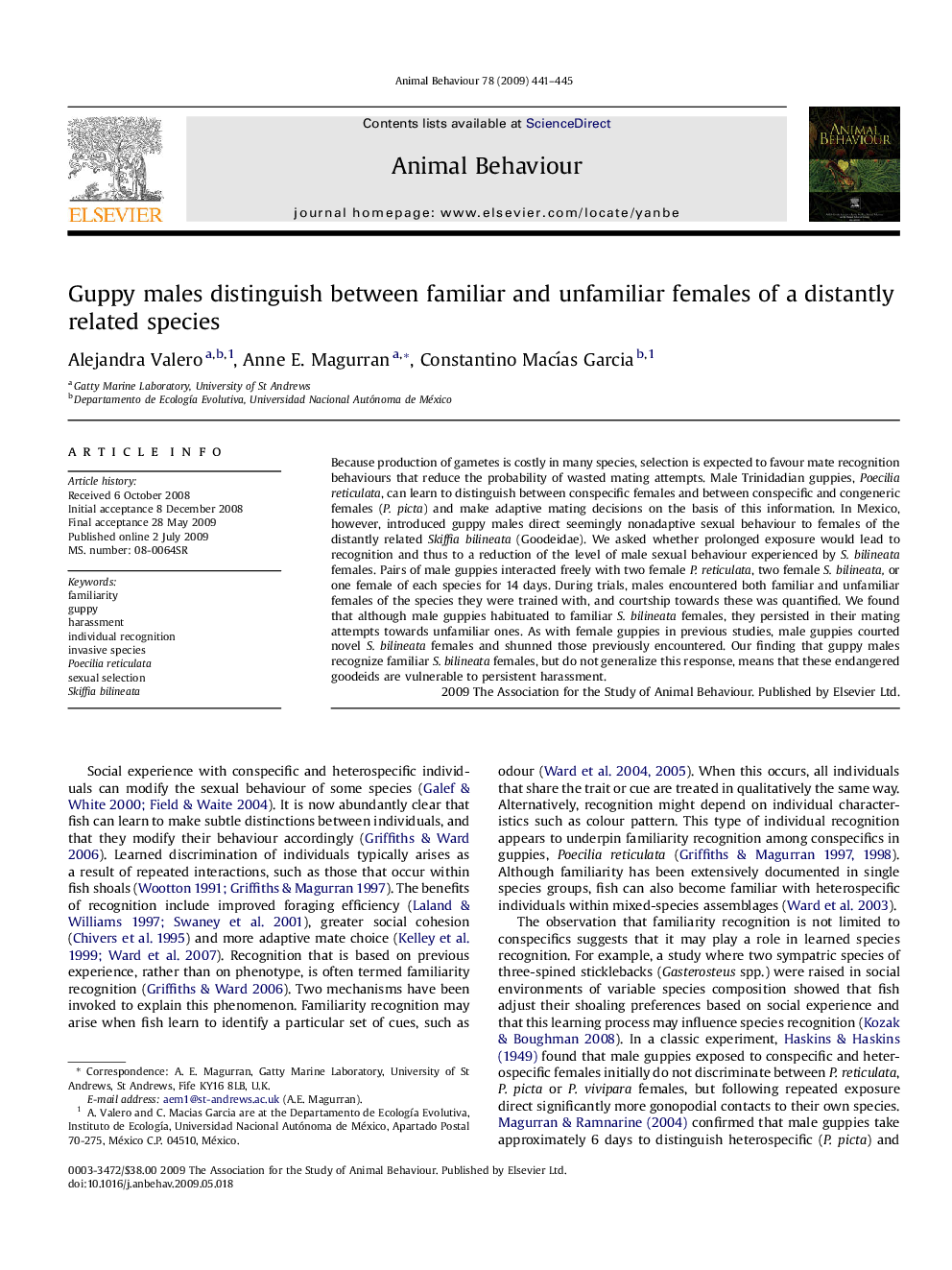| Article ID | Journal | Published Year | Pages | File Type |
|---|---|---|---|---|
| 2417445 | Animal Behaviour | 2009 | 5 Pages |
Because production of gametes is costly in many species, selection is expected to favour mate recognition behaviours that reduce the probability of wasted mating attempts. Male Trinidadian guppies, Poecilia reticulata, can learn to distinguish between conspecific females and between conspecific and congeneric females (P. picta) and make adaptive mating decisions on the basis of this information. In Mexico, however, introduced guppy males direct seemingly nonadaptive sexual behaviour to females of the distantly related Skiffia bilineata (Goodeidae). We asked whether prolonged exposure would lead to recognition and thus to a reduction of the level of male sexual behaviour experienced by S. bilineata females. Pairs of male guppies interacted freely with two female P. reticulata, two female S. bilineata, or one female of each species for 14 days. During trials, males encountered both familiar and unfamiliar females of the species they were trained with, and courtship towards these was quantified. We found that although male guppies habituated to familiar S. bilineata females, they persisted in their mating attempts towards unfamiliar ones. As with female guppies in previous studies, male guppies courted novel S. bilineata females and shunned those previously encountered. Our finding that guppy males recognize familiar S. bilineata females, but do not generalize this response, means that these endangered goodeids are vulnerable to persistent harassment.
